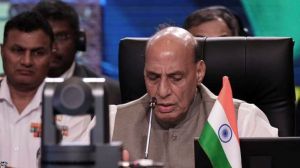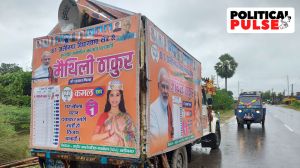Govt pushing for reservation in pvt sector
PM Manmohan Singh said the govt is working to reserve private jobs for the socially underprivileged.
Prime Minister Manmohan Singh said the government is working towards creating an atmosphere where trade and industry come forward to reserve jobs for the socially underprivileged – a practice in vogue in the public sector.
Reserving jobs in private sector or affirmative action was part of the national Common Minimum Programme of UPA-I and it had initiated a national dialogue with political parties and industry to see how this can be implemented.
“To take forward the affirmative action,we need to create an atmosphere so that trade and industry participants help us on this issue. We are working hard towards that and we acknowledge it needs to be taken forward fast,” he said replying to a question on progress on affirmative action.
The UPA-I had said in May 2004 that it “is very sensitive to the issue of affirmative action,including reservations,in the private sector.
“It will immediately initiate a national dialogue with all political parties, industry and other organizations to see how best the private sector can fulfil the aspirations of scheduled caste and scheduled tribe youth.”
At present,the law provides for reservation for Scheduled Castes and Scheduled Tribes,among others,in public sector jobs,besides quota in education.
Inflation to ease to 5-6% by Dec: PM
Prime Minister Manmohan Singh said the government was confident of bringing down inflation to 5-6 per cent by December,while blaming high prices on the global developments such as the financial crisis.
“Prices continue to be a matter of concern … it is affecting the country’s masses … but I believe by December we can bring it down to 5 to 6 per cent,” he said at his national press conference here to mark the completion of one year UPA-II in office.
Singh said the government has been monitoring inflation and has been taking measures to check the rising prices,particularly food products hit by poor monsoons last year.
“But for this (high inflation),international financial crisis and high prices of petroleum prices in global markets are to blame. Besides,droughts and floods in some parts of the country last year also affected our economy as whole,” Singh said.
Monsoon accounts for a bulk of rains India receives and nearly 66 per cent of the country’s agriculture sector depends on rains for cultivation.
High food and fuel prices fuelled overall inflation to over 10 per cent in February and provisional numbers for April put it at 9.59 per cent.
“As a result of steps we have taken,there are signs of prices showing a moderating trend,” Singh said.
“We are closely monitoring the situation and together with state governments take all steps to bring down prices and protect the vulnerable section of our society from the impact of high prices,” Singh added.
Food inflation,which had shot above 20 per cent in December has since moderated but is still above 16 per cent.
PM sees 8.5 pct growth 2010/11
India’s inflation is showing signs of moderating and the government expects to achieve a medium term target of 10 percent growth annually,according to a draft speech by Prime Minister Manmohan Singh on Monday.
Singh said in the draft speech that he will take more steps to battle inflation which is currently nearly 10 percent,along with the help of state governments.
Our medium term target is to achieve a growth rate of 10 percent per annum. I am convinced that given our savings and investment rates,this is an achievable target,the speech draft said. However,its achievement will require determined efforts to increase investment in social and economic infrastructure,enhance productivity in agriculture and give a fresh impetus to the manufacturing sector.
The draft speech comes before a news conference in New Delhi to mark the first year since the Congress-led coalition government was reelected to a second term. It is only one of a handful of press conferences he has given since first coming to power in 2004.
Despite inflation,Singh sees growth in 2010/11 rising to 8.5 percent.
Singh,77,has disappointed many investors with a slow pace of reforms that investors say are needed to ensure India can sustain fast economic growth and compete with the likes of China.
Despite being freed from the shackles of communist party support in the second term,his government has floundered on inflation,struggled against a Maoist insurgency,and managed its political allies so badly its substantial parliamentary majority dwindled. But the government has also won praise for a sound fiscal policy that has helped protect India from the worst of the global credit crisis. Growth is still one of the fastest in the world and there have been some tentative steps to reforms.
Many investors remain optimistic India eventually will take steps to open the insurance,banking and retail sectors to overseas players,and India still attracts many foreign firms.





- 01
- 02
- 03
- 04
- 05


























